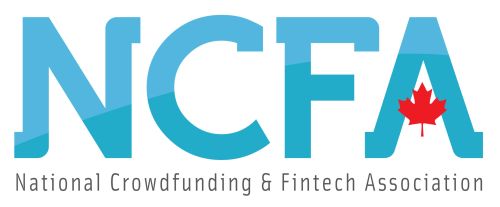Tristram Waye for Bitvo | Jan 26, 2023

Image: Unsplash/Kenny Eliason
Crypto blew up, governments cracked down, regulation forthcoming? We are now in a place where awareness has to be exercised in places where trust was once taken for granted. And that means embracing two principles from the Middle Ages. These are caveat emptor and the fiduciary standard.
- Caveat emptor: The word caveat emptor means buyer beware in Latin. The idea is that the buyer is responsible for assessing whatever it is that they are buying. Its origins date back to the open markets of the 16th century.
- In developed countries, the concept has moved from buyer to seller beware. Numerous consumer protection laws have been enacted to lift the burden from the buyer and shift it to the seller. In general, there are numerous remedies for established consumer products.
See: How Important is KYC for crypto transactions?
- But for speculative, largely unregulated assets like crypto, caveat emptor is still highly relevant.
- Keep in mind that in contrast with venture capital, crypto secondary markets are a massive benefit. As William Janeway said about venture capital, cash and control are key elements in VC. Meaning that if the project goes sideways, you can’t sell it in the secondary market and take the loss because that market rarely exists. So you either take a goose egg or add more cash and take control.
- The fiduciary standard is fundamentally different from caveat emptor. It represents a special duty of care by someone providing specific advice to another person. And it is used widely in various relationships in the financial industry. In the middle ages, this concept was associated with the early trusts.
- Trusts evolved as the industrial revolution expanded. They now included capital as in shares and other financial assets. The fiduciary standard is, therefore, intimately associated with the money management business as a result.
- The fiduciary or advisor is required to always put the interest of the client first. And that advice includes advice that might be against the interests of the advisor.
See: Valkyrie Interview: Institutional Investors and Crypto Prices
- Caveat + Fiduciary standard in crypto: The challenge with regulating a decentralized asset is that it is borderless and fluid. Not to say that it’s clear that many aspects of traditional finance are also borderless and fluid as well. They are. But what it means is that while blockchain protocols and governance standards are designed to prevent bad actors, perhaps the crypto industry should go further.
- Autonomy and responsibility: crypto gives you autonomy and responsibility. You can be your own bank with self-custody. And when choosing assets, you can act like your own financial advisor. Caveat emptor means paying attention to outlandish claims and obvious stupidity in white papers.
- Double-digit interest rates? Caveat emptor.
- Actions inconsistent with claims? Caveat emptor.
- You can use the fiduciary standard in a unique way in conjunction with caveat emptor. The idea is to treat your coins, money, and or other assets as belonging to a client. And you have a responsibility to always put that client first.
- Autonomy and responsibility: crypto gives you autonomy and responsibility. You can be your own bank with self-custody. And when choosing assets, you can act like your own financial advisor. Caveat emptor means paying attention to outlandish claims and obvious stupidity in white papers.
Continue to the full article –> here
 The National Crowdfunding & Fintech Association (NCFA Canada) is a financial innovation ecosystem that provides education, market intelligence, industry stewardship, networking and funding opportunities and services to thousands of community members and works closely with industry, government, partners and affiliates to create a vibrant and innovative fintech and funding industry in Canada. Decentralized and distributed, NCFA is engaged with global stakeholders and helps incubate projects and investment in fintech, alternative finance, crowdfunding, peer-to-peer finance, payments, digital assets and tokens, blockchain, cryptocurrency, regtech, and insurtech sectors. Join Canada’s Fintech & Funding Community today FREE! Or become a contributing member and get perks. For more information, please visit: www.ncfacanada.org
The National Crowdfunding & Fintech Association (NCFA Canada) is a financial innovation ecosystem that provides education, market intelligence, industry stewardship, networking and funding opportunities and services to thousands of community members and works closely with industry, government, partners and affiliates to create a vibrant and innovative fintech and funding industry in Canada. Decentralized and distributed, NCFA is engaged with global stakeholders and helps incubate projects and investment in fintech, alternative finance, crowdfunding, peer-to-peer finance, payments, digital assets and tokens, blockchain, cryptocurrency, regtech, and insurtech sectors. Join Canada’s Fintech & Funding Community today FREE! Or become a contributing member and get perks. For more information, please visit: www.ncfacanada.org
Related Posts
- SEO Powered Content & PR Distribution. Get Amplified Today.
- Platoblockchain. Web3 Metaverse Intelligence. Knowledge Amplified. Access Here.
- Source: https://ncfacanada.org/are-markets-moving-towards-a-crypto-fiduciary-caveat-emptor-standard/



